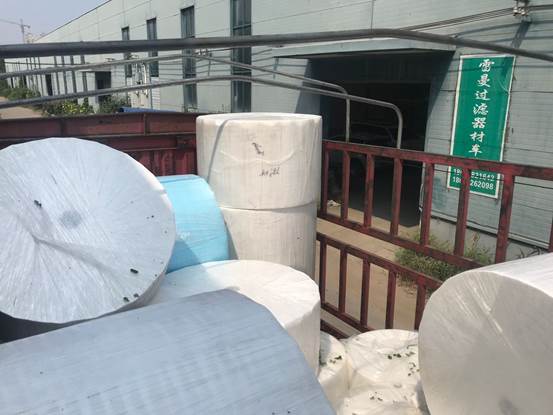Jul . 28, 2024 01:12 Back to list
HEPA Filter Certification Standards for Pharmaceutical Applications and Compliance Testing Methods
CE Certification of HEPA Filters for Pharmaceuticals
In the pharmaceutical industry, maintaining a controlled and contamination-free environment is critical to ensuring product quality and safety. One of the key components in maintaining such an environment is the use of High-Efficiency Particulate Air (HEPA) filters. The efficacy of HEPA filters in removing airborne particles has made them a standard in pharmaceutical manufacturing and cleanroom operations. However, to ensure these filters meet safety and performance standards, CE certification becomes essential.
Understanding HEPA Filters
HEPA filters are designed to trap a minimum of 99.97% of particles that are 0.3 microns or larger in diameter. This includes harmful pathogens, dust, pollen, and other particulate matter. In pharmaceutical settings, the presence of such contaminants can lead to product contamination, which can compromise patient safety and violate regulatory compliance. Thus, having a reliable filtration system is paramount.
The Importance of CE Certification
CE marking is a declaration by the manufacturer that their products comply with the European Union (EU) safety, health, and environmental protection standards. When it comes to HEPA filters, obtaining CE certification signifies that the product has undergone rigorous testing to ensure it meets specific performance requirements. This certification is particularly important for pharmaceutical applications, where the integrity of the production environment is essential.
1. Regulatory Compliance The pharmaceutical industry is heavily regulated. Compliance with guidelines set forth by agencies like the European Medicines Agency (EMA) and the U.S. Food and Drug Administration (FDA) is non-negotiable. CE certification ensures that HEPA filters conform to EU regulations, making them suitable for use in pharmaceutical facilities.
ce certification hepa filter for pharmaceuticals

2. Quality Assurance CE certification helps maintain high-quality standards in the manufacturing process. Certified HEPA filters are guaranteed to perform at the required standards and undergo regular inspections and testing to ensure they continue to meet these standards over time.
3. Market Access For manufacturers looking to sell their products in European markets, CE certification is often a prerequisite. Without it, manufacturers risk being unable to market their HEPA filters, thereby losing business opportunities.
The Certification Process
The process for CE certification involves several steps. First, the manufacturer must identify the applicable EU directives and standards related to HEPA filters. Next, various tests must be conducted to demonstrate compliance with these standards, including airflow resistance, filtration efficiency, and integrity testing.
Once the testing is complete, the manufacturer must compile a technical file that documents compliance with the relevant directives. This file is then presented to a notified body, which conducts an additional review. If the notified body is satisfied, the manufacturer can affix the CE marking to their HEPA filters, allowing them to be marketed within the EU.
Conclusion
In conclusion, CE certification of HEPA filters is an essential step in ensuring their reliability and effectiveness in the pharmaceutical industry. It guarantees that these filters have been tested to meet stringent EU standards, thus providing a critical layer of protection against contamination. For pharmaceutical companies, investing in CE-certified HEPA filters is not only a regulatory requirement but a necessary measure to maintain product integrity, ensure patient safety, and uphold their reputations in a competitive market. By prioritizing the use of certified filtration systems, manufacturers can foster a safer and more efficient production environment.
-
Premium Acrylic-Resin Air Filter Paper in Roll | High Efficiency
NewsAug.19,2025
-
PLAB-6 A B Two Compounds Filter End Cap Gluing Machine-Hebei Filter Man|Precision Gluing,Automated Production
NewsAug.18,2025
-
PLAB-6 A B Two Compounds Filter End Cap Gluing Machine - Hebei Filter Man Automotive Parts Trading Co., Ltd | Adjustable Gluing Parameters, Automated Precision
NewsAug.18,2025
-
PLAB-6 A/B Two Compounds Filter End Cap Gluing Machine-Hebei Filter Man|Precision Engineering&Efficiency
NewsAug.18,2025
-
Active Carbon Air Filter for Purifier: Superior Air Quality & Odor Removal
NewsAug.18,2025
-
PLAB-6 Gluing Machine-Hebei Filter Man|Precision Gluing,Automated Filtering
NewsAug.17,2025
